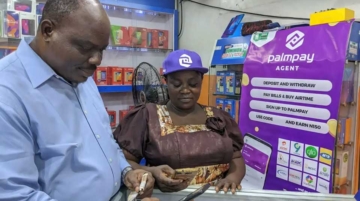
A Chinese business owner in South Africa was recently kidnapped, underscoring the growing risks faced by expatriate entrepreneurs. In response, the WeChat public account 南非天天报 (South Africa Daily News) published a comprehensive guide offering local Chinese merchants practical advice to avoid such threats.
Unlike generic safety warnings, this article delves into vivid, real-world details—such as why liquor store owners are prime targets and the psychological tactic of shouting “God loves you!” to unsettle religious kidnappers. It also explores the nuances of Chinese-South African workplace dynamics, recommending that bosses build loyalty by celebrating staff birthdays, rewarding employees who report suspicious activity with unsold stock, and displaying team photos at shop entrances.
These granular insights reveal how crime intertwines with daily business operations, demonstrating that cultural savvy can be as crucial as security systems—and how wealthy expatriates can better integrate with local communities.
Key Risk Factors:
Targets:
- Chinese shop owners, especially those running liquor stores, are primary targets.
- Business owners with multiple shops are at higher risk (more perceived wealth).
Modus Operandi:
- Criminals conduct surveillance, tracking victims’ routines (e.g., commute times, routes, cash movements).
- Gangs often pose as customers to scout shops, assess security, and identify vulnerabilities.
Preventive Measures:
Personal Safety:
- Vary routines: Change commute routes/times; avoid predictable schedules.
- Use tech: Enable phone/smartwatch GPS tracking; share access with trusted contacts.
- Stay alert: Watch for suspicious vehicles/individuals; avoid late-night travel.
Shop Security:
- Upgrade defenses: Install alarms, CCTV, and panic buttons; use remote monitoring.
- Cash handling: Minimize cash use; split large sums during transfers; keep a “decoy” cash stash (R10k–50k).
- Employee relations:
- Screen staff backgrounds; foster loyalty through bonuses/birthday gifts.
- Train employees to report suspicious activity (offer rewards).
- Display staff photos at the entrance to deter insider collusion.
- Teach emergency protocols (e.g., activating alarms, using fire extinguishers).
Community Engagement:
- Neighbor cooperation: Build relationships with nearby shops/residents for mutual vigilance.
- Local integration: Engage with community policing forums; donate to local causes.
During an Incident:
- Comply: Prioritize life over property; avoid resistance unless certain of escape.
- Appeal to faith: Say “God loves you” or “Jesus loves you” (many criminals are religious and may hesitate).
- Post-incident: Contact police/Chinese consulate immediately; avoid negotiating ransoms alone.
Additional Tips:
- Armed defense: Conceal firearms (if licensed); avoid revealing ownership prematurely.
- Travel smart: Carpool with other business owners; request mall security escorts.
- Pets: Guard dogs can deter intruders.
Meanwhile, another WeChat public account focused on the Chinese community in Africa, African Chinese Weekly News (非洲华侨周报) drew attention to South Africa’s “Blue Light Gang” – criminal networks that target foreign nationals through police impersonations.
The article introduced recent cases including a truck hijacking in Sebenza on April 23 and multiple earlier incidents along the N3 Highway and Johannesburg’s Winnie Mandela Drive.
In those cases, criminal gangs equipped with authentic-looking uniforms, fake badges, and unmarked vehicles fitted with blue emergency lights are hijacking cars after pulling over unsuspecting drivers.
These crimes feed South Africa’s rampant stolen vehicle market, where hijacked cars are quickly dismantled for parts or smuggled into neighboring countries’ illegal resale networks.
Of grave concern to Chinese communities is the gangs’ shifting target list. While Toyota and Volkswagen remain prime targets, Chinese brands like Haval and Chery are increasingly stolen – a direct consequence of their growing African market share.








